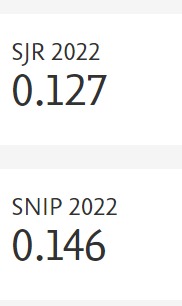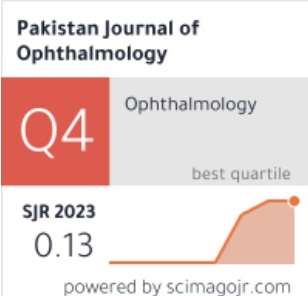Computer Vision Syndrome and Ergonomic Practices among Students and Professionals
Doi: 10.36351/pjo.v40i4.1858
DOI:
https://doi.org/10.36351/pjo.v40i4.1858Abstract
Purpose: To investigate the frequency of Computer vision syndrome (CVS) and its association with ergonomic practices among students and professionals.
Study Design: Cross sectional observational study.
Place and Duration of Study: Online survey.
Methods: This study involved a pre-tested self-designed structured questionnaire distributed through Google Forms to gather responses from students and professionals regarding symptoms of CVS. The form was shared with approximately 2500 individuals, the response rate was 10.04%, resulting in 251 responses. After careful review, 237 responses were deemed suitable for inclusion in the study. The chi-square test was used and p-value less than 0.05 was considered statistically significant.
Results: The relationship between symptoms of CVS (headache, body fatigue or tiredness, burning sensation, blurred vision, and dry eyes) and various ergonomic practices (screen time, longest uninterrupted time, breaks during screen use, screen size, type of screen, font size, refresh rate, and screen resolution) was seen in 237 subjects. The study revealed increased frequency of CVS symptoms when using screens. There was a statistically significant effect of prolonged screen time (p<0.05), smaller screen sizes (p<0.05), lower refresh rates (p<0.05), small font size (p<0.05) and lower screen resolutions (p<0.05) on the severity of CVS symptoms.
Conclusion: These findings enhance our understanding of the complex relationship between ergonomics and visual discomfort, and they will guide future interventions aimed at improving visual comfort and ergonomics in screen-based environments.

Downloads
Published
How to Cite
Issue
Section
License
Copyright (c) 2024 Bushra Kanwal, Iqra Khalil

This work is licensed under a Creative Commons Attribution-NonCommercial 4.0 International License.






